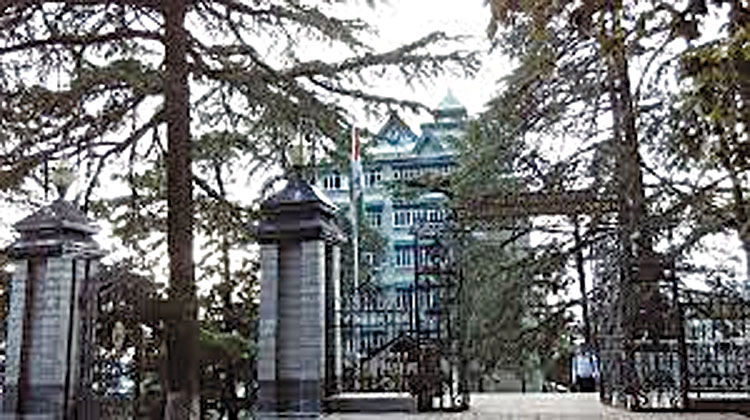Shimla, Nov 6 (Representative) In a landmark judgment, the Himachal Pradesh High Court on Tuesday directed the Panchayat authorities to register the names of three minor children from a second marriage in the official Birth and Pariwar Registers. Order was passed by Justice Jyotsna Rewal Dua while hearing a petition filed by the mother, the natural guardian of three minors aged 12, 9, and 5, seeking a directive to include her children’s names in the Panchayat’s records. The mother and her children faced significant administrative hurdles when their requests were repeatedly denied by the local authorities. The denial was based on the legal interpretation of Section 4(a) of the Special Marriage Act, 1954, which prohibits a person from remarrying if they have a living spouse. The children’s father had solemnised a second marriage with their mother while his first wife was still alive. Despite this, both the father and his first wife provided affidavits and statements before the authorities, supporting the inclusion of the children’s names in the Panchayat records. The father openly acknowledged the children, and his first wife expressed no objection to their registration. The case brought to light the legal complexities surrounding second marriages and the rights of children born from such unions. The petitioners contended that their exclusion from the Panchayat records violated their rights and caused undue hardship, especially concerning their access to public benefits and recognition in the community.
During the litigation, the petitioners’ counsel Divya Raj Singh argued that the children’s right to be registered should not be hindered by the marital status of their parents. The Additional Advocates General, Mr. Dalip K. Sharma and Mr. Amandeep Sharma, representing the respondents, maintained that the marriage’s invalidity under the Special Marriage Act precluded the registration of the children. Justice Jyotsna Rewal Dua examined the arguments and emphasised the provisions of Section 16 of the Hindu Marriage Act, 1955, which grants legitimacy to children born from void or voidable marriages. The court clarified that the children’s right to registration was independent of the validity of their parents’ marriage and was crucial for their legal and social recognition. In a detailed verdict, Justice Dua underscored the duty of Panchayat officials under the Registration of Births and Deaths Act, 1969, to register all births, irrespective of the parents’ marital status. The court found the respondents’ objections legally unfounded and directed them to register the children’s names within five weeks. Justice Dua’s ruling highlighted the evolving interpretation of laws in the context of social justice, emphasising the importance of safeguarding the rights and dignity of children born out of non-traditional marital arrangements.

